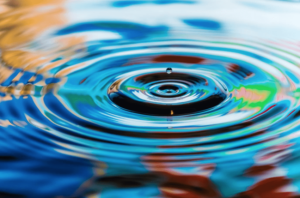 Summer heat reminds us of the importance of one of our most precious resources–water. From swimming pools to sprinklers to kitchen sinks, in our rapidly growing tourism sector hotels are big water consumers.
Summer heat reminds us of the importance of one of our most precious resources–water. From swimming pools to sprinklers to kitchen sinks, in our rapidly growing tourism sector hotels are big water consumers.
Population growth and climate change are making water scarcity a growing global concern.
Hotels have both a commercial and moral interest in reducing water consumption.
Water accounts for approximately 10% of utility bills in most hotels. Executing an informed water management plan to include technology upgrades and employee training can reduce hotel water usage and waste, and cut escalating water bills.
See a suggested list of possible ways to initiate water conservation in hotels. As always, test your initiatives to ensure the measures taken will not compromise service quality, health or safety.
1. Establish a Water Management Plan
Begin with a water usage audit to get a clear understanding of your costs and savings opportunities. Meter your usage. Careful measuring can expose your problem areas and give you valuable information on water usage over time.
Research the availability of government funding or loans for investment in water-saving technologies.
Set goals and communicate these goals to the hotel staff so they understand best water-saving practices and how to maintain equipment for optimum efficiencies. You may also consider adding a staff incentive plan to encourage employees to be vigilant in reducing water consumption.
Employees will have a major impact on water usage. Put procedures in place to train and inform housekeeping on reducing water usage including not to leave taps running, how often to flush toilets when cleaning and using a mop rather than a hose when cleaning floors.
Remember, hotels like most businesses, pay twice for the water they consume – first by purchasing fresh water and then by disposing of the wastewater. Creating efficiencies will produce long-term savings and sustainability.
2. Minimize water usage from Bathrooms
Low flow bathroom features can reduce water usage by as much as 30%. Aerated shower heads and low flow toilets are becoming more and more economical. As you work through your renovation and long-term capital improvement plan, consider adding low flow features.
Maintenance is key. Fix leaks! A leaking toilet can lose up to 200 gallons of water daily. Also, flow restrictors or better aerators can both help reduce all tap flow.
3. Minimize water usage from Laundry Services
Laundry accounts for a significant percentage of water usage in the hospitality industry.
Post your policies regarding towel placement and laundering clearly. Many hotel guests have become respectful of requesting laundry service only when necessary.
Educate employees on the optimum number and size of machine loads.
Additionally, consider working with chemical and equipment vendors on the strategies to consumer water use. Many vendors have introduced new technology that drastically reduces water usage, and new equipment could pay for itself in reduced water usage.
4. Minimize water usage from Swimming Pools
Swimming pools can increase freshwater consumption by up to 10%.
Pool maintenance is critical and includes regular checking for leaks and water conscious cleaning schedules. If your pool has hours when it is not in use, consider covering swimming pools to prevent evaporation reducing the need to empty and refill.
If you have showers near the pool area, consider installing push-button showers to reduce water usage.
5. Minimize water usage from Landscaping
Many hotel landscapes are filled with turf grass and non-native plants requiring expensive and water-wasteful irrigation systems. Consider landscaping with native species that have adapted to their environment and require less human intervention.
Also, consider rainwater collection. Thoughtful roof design and gutter placement can yield additional water for irrigation and other uses.
6. Install Water Efficiency Systems
Research graywater strategies (wastewater generated by laundry, dishwashing, bathing, etc.) If treated properly, gray water can be repurposed for irrigation and toilet flushing reducing the usage of potable fresh water. Graywater systems can enable up to 50% of wastewater to be returned to the hotel after treatment.
Consider adjustable flow restrictors on taps enable them to deliver a lower instantaneous flow rate than screw-operated taps. This can reduce tap water use by over 50%.
Hotel water conservation doesn’t only save a precious resource, it saves money. Establishing a water management plan now will create a more sustainable growth plan for your hotel’s future.
References: http://www.greenhotelier.org/know-how-guides/water-management-and-responsibility-in-hotels/


Thanks it’s very helpful for me and other motel owners too.
I am student of BHMCT and this information is very helpful for me.